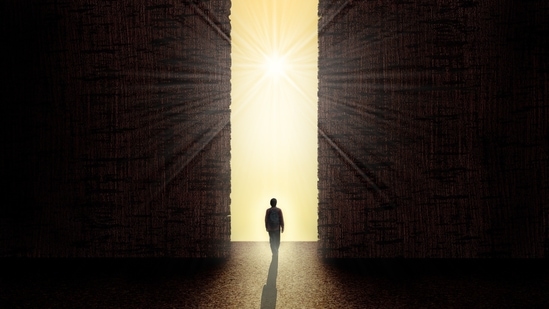Just Like That | Notes on the mystery and the inevitability of death
At the cremation of a class fellow from St Stephens, what struck me afresh was the finality of death.
Last week, a class fellow from St Stephens, Samir Mathur, died suddenly of a cardiac arrest. The day he died, he had hosted a lunch, and the evening before, he was at a dinner, where he was quite the soul of the evening. A member of the Indian Administrative Service, a wonderful human being, a musician and a poet, he was a friend for decades. Neither he nor his friends and family had the slightest inkling that the end would come so abruptly.

At his cremation, what struck me afresh was the finality of death. The lines of the poet, Hairat Allahabadi, came to me: “Aagah apni maut se koi bashar nahin, samaan sau baras ka kal ki khabar nahin (No one is aware of the moment of one’s death, we plan for a hundred years, not knowing what will happen next).”
Death is an inevitability we find very difficult to accept. In the famous Yaksha Prashna of the Mahabharata, on which I have written a poem, Yudhistar and Draupadi (which Gulzar has translated and also written a play on), the Yaksha asks Yudhishtar: “O Arya, tell me now, what in this world is most wonderful?” And Yudhistar replies: “Millions pass on, yet the living think they won’t die; what can be more wonderful than this strange lie.”
Our days are spent in the grip of the daily humdrum of life. We are all driven by the great illusion of ”I-ness”, the ego, incessantly trying to climb the greasy pole of fame and success, victims of a never-ending rat race, prisoners of our own insularity. But what is the worth of all we achieve in the face of that final moment of annihilation? Do we ever pause, while still living, to seek fulfilment in a dimension beyond ourselves? Adi Shankaracharya gently admonishes a scholar who thought cramming grammar was the ultimate achievement. “Bhaja Govindam bhaja Govindam bhaja Govindam mudhamate, Samprapte sannihite kale nahi nahi rakshati dukrakarne (Worship Govinda, worship Govinda, worship Govinda, foolish one! Rules of grammar profit nothing once the hour of death draws nigh.”
Birth and death are the two fixed coordinates of our lives. We can neither choose to be born, nor choose the time of our departure. Faith or divine grace — if you are a believer — can perhaps delay the departure, or reduce the suffering. But ultimately, the universe is estimated to be over 13 billion years old, and our puny lives are less than a speck against this canvas of time. All is passing, a mirage.
Buddhism believes that you can never step into the same river twice. If we are born, we will die, a truth expressed eloquently by the poet Zauq: “Layi hayaat aaye qaza le chali chale, na apni khushi se aaye hum na apni khushi chale (Existence brought me, death takes me away, I was neither born of my choice, nor in my death will have a say.)”
And yet, perhaps death can be a beautiful experience, as many survivors of near-death experiences unanimously testify. In that moment, their only remembrance is of unalloyed bliss, liberation, and a sense of oneness with the cosmos. That is why death confers moksha or nirvana, beyond the fetters of human bondage. Ghalib has a beautiful couplet on this: “Partav-e-khur se hai shabnam ko fana ki taalim, main bhi hoon ek inayat ki nazar hone tak (From the rays of the rising sun the dew drop learns of its demise, I too exist until a benevolent grace does me surprise.)
The Bhagwad Gita says that the body perishes but the soul is eternal, because it is part of Brahman, the eternal cosmic consciousness, experienced as Chidananda (bliss and awareness). Sikhism reiterates this: “Ik noor se sab jag upja (The world is but a reflection of that One Effulgence’’), to which we will return.
Ultimately, therefore, it is how you look upon the final passing. Atal Bihari Vajpayee, in his famous poem Maut se Than Gai (The Battle with Death), wrote: “How long will death last? A moment, perhaps two; I have lived to the full, I will die as I choose; I will return, I have no fear of letting go.”
Pavan K Varma is author, diplomat, and former Member of Parliament (Rajya Sabha).
Just Like That is a weekly column where Varma shares nuggets from the world of history, culture, literature, and personal reminiscences with HT Premium readers
The views expressed are personal
All Access.
One Subscription.
Get 360° coverage—from daily headlines
to 100 year archives.



HT App & Website







